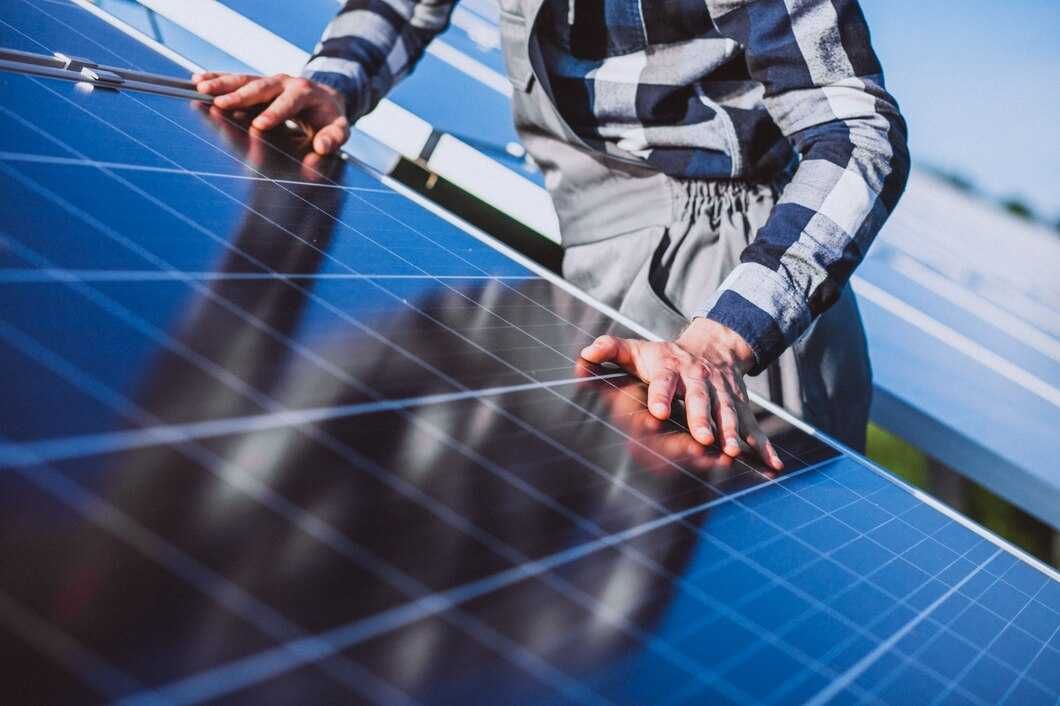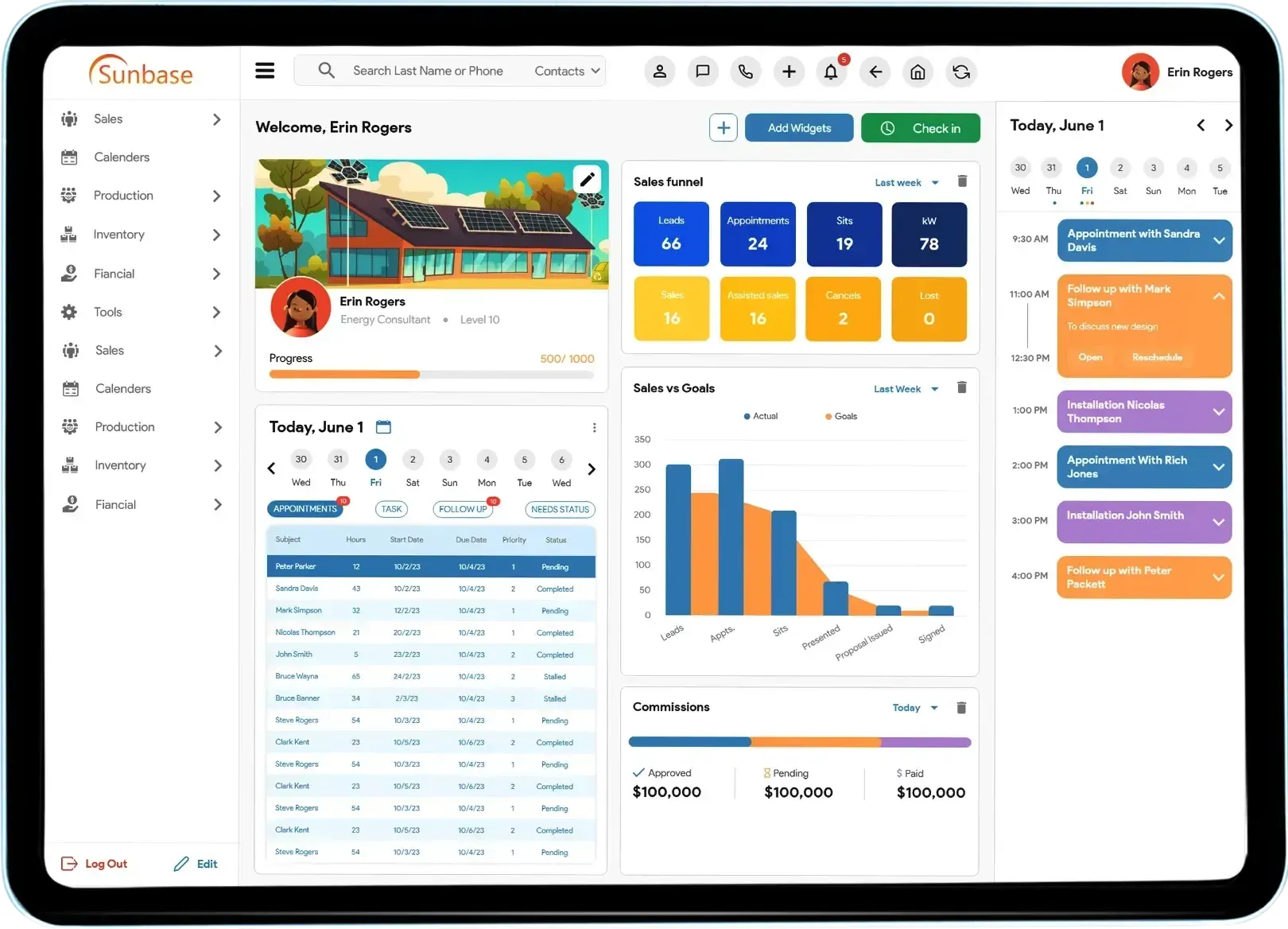April 26, 2024
In a world where renewable energy is becoming increasingly crucial, solar power has emerged as a frontrunner in the race to a sustainable future. However, misconceptions and myths about solar energy still persist, deterring many from embracing this transformative technology.
Today we will debunk the top 8 solar myths and share the facts you need to know. From cost and efficiency to environmental impact and maintenance, we'll explore the truth behind the hype and empower you to make informed decisions about choosing solar panel systems in the future.
Where do Solar Myths come from?
Solar energy myths can come from a variety of sources, including misinformation, lack of understanding, or outdated information. Some people may believe that solar panels are toxic and impossible to recycle, which is a myth that has persisted due to a lack of understanding about the recycling process for solar panels.
Others may believe that solar energy is a scam or that it doesn't provide a return on investment. Additionally, some solar energy myths may stem from concerns about the environmental impact of solar panels.
For example, some people may believe that solar energy projects destroy vast tracts of land, contributing to habitat loss and environmental degradation.
However, this is a myth that can be debunked by the fact that solar farms can be developed on already disturbed or non-pristine lands, such as brownfields, landfills, or industrial areas.
Solar Myths Debunked
One of the most significant benefits of integrating a solar system into your home is the potential for substantial savings on electricity bills.
Many homeowners hesitate, fearing the initial costs and questioning the system's effectiveness during less sunny periods or in colder climates.
Believing in such false information can lead to missed opportunities. If people think that solar panels are too expensive or inefficient, they might not even consider them as an option for their homes or businesses.
By debunking solar myths, we can help more people understand the real benefits of solar power. So let's debunk all the solar myths today.
Myth 1: Solar panels have a short lifespan
Explanation of the myth
The myth surrounding solar panels suggests that they have a short lifespan. This will lead some to believe that investing in solar energy may not be a durable or long-term solution. This misconception can deter individuals from considering solar energy as a viable option for sustainable electricity generation.
Myth Debunked: Solar panels can last for 25 to 30 years or more
Contrary to the myth, the reality is that solar panels have a lifespan that typically ranges from 25 to 30 years or even longer. Studies and real-world performance data support this estimate, highlighting the longevity of solar panels when properly maintained and cared for.

Factors such as the quality of materials, manufacturing processes, and environmental conditions play a crucial role in determining the lifespan of solar panels. Higher-quality panels are designed to withstand various environmental factors, ensuring their durability over an extended period.
Myth 2: Solar energy is only useful during daylight hours
Explanation of the myth
The myth that solar energy is only useful during daylight hours is a common misconception that may deter people from adopting solar energy systems. People believe that cooler temperatures can affect solar panels negatively.
This belief stems from the assumption that solar panels require direct sunlight to generate electricity, leading some to believe that they are ineffective during cloudy or dark conditions.
Myth Debunked: Solar energy systems can include battery storage systems that store the energy produced during the day
In reality, solar energy systems can incorporate battery storage systems that store the energy generated during the day for use during the night or periods of low sunlight.
These battery storage systems allow solar energy to be used around the clock, maximizing the benefits of solar energy and ensuring a reliable source of electricity even during non-daylight hours.
Overall, battery storage systems enhance the functionality and value of solar energy systems, making them a valuable addition to any solar energy system.
Myth 3: Solar energy is only for wealthy people
Explanation of the myth
The myth that solar energy is only for wealthy people suggests that the cost of solar energy systems is prohibitive for the average consumer.
This misconception may stem from the historical perception that solar panels were expensive and only accessible to those with higher incomes.
The belief that solar energy is a luxury reserved for the wealthy can discourage individuals from considering solar power as a viable and cost-effective energy solution for their homes or businesses.
Myth Debunked: The cost of solar energy has decreased significantly in recent years and has become more affordable for many people.
Contrary to the myth, the reality is that the cost of solar energy has decreased significantly over the years, making it more affordable and accessible to a broader range of consumers.
Technological advancements, increased competition in the solar industry, and government incentives have contributed to the reduction in the cost of solar energy systems.
As a result, solar power is now a cost-effective option for many homeowners and businesses, regardless of income level.
Myth 4: Solar Software is not reliable
Explanation of the myth
The myth that solar software is not reliable suggests that the solar software that is developed is of no use as solar energy requires human intervention throughout.

This misconception may arise from concerns about the variability of sunlight, leading some to believe that solar energy systems are unreliable and unable to meet the energy demands of consumers consistently.
Myth Debunked: The technology has improved greatly in recent years and solar software is reliable
Contrary to the myth, the reality is that advancements in solar technology have significantly improved the reliability of solar energy systems in recent years.
Solar power plants can now be integrated with other energy sources, such as battery storage systems or backup generators, to ensure a consistent and reliable power supply.
By combining solar energy with complementary technologies, the reliability of solar power can be enhanced, making it a dependable source of electricity even during periods of low sunlight or grid outages.
Myth 5: Solar panels are too bulky and unattractive
Explanation of the myth
The myth that solar panels are too bulky and unattractive stems from the perception that solar panels are large, cumbersome, and visually unappealing. This misconception may discourage some individuals from adopting solar energy due to concerns about the impact on their property's appearance.
Myth Debunked: Modern solar panels are much smaller and sleeker, and can be integrated into the design of a building
In reality, modern solar panels are becoming smaller, sleeker, and more aesthetically pleasing. They can be integrated into the design of a building, making them less noticeable and more visually appealing.
Installing solar panels has also become much easier with solar panels being lightweight. Not only this, solar panel installation will also cost less with modern solar panels as there will be less work.
Myth 6: Solar power is inefficient
Explanation of the myth
The myth that solar power is inefficient suggests that solar panels are not capable of generating a significant amount of electricity, particularly in regions with less sunlight or in cloudy or cold climates.
This misconception may discourage some individuals from adopting solar energy due to concerns about its effectiveness.
Myth Debunked: Modern solar panels have become highly efficient and can still generate electricity in regions with less
sunlight and in cloudy or cold climates
In reality, modern solar panels have become highly efficient, with some models approaching 23% efficiency. These panels are designed to capture and convert sunlight into electricity more effectively, making them capable of generating electricity even in regions with less sunlight or in cloudy or cold climates.
The myth that solar power is inefficient is debunked by the fact that modern solar panels have become highly efficient and can still generate electricity in regions with less sunlight and in cloudy or cold climates.
Myth 7: Solar Installation is difficult
Explanation of the myth
The myth that solar installation is difficult stems from the perception that the process is complicated and requires significant resources, time, and expertise.
However, this is not the case, as solar installation has become more accessible and streamlined in recent years.
Myth Debunked: Solar installation is a straightforward and accessible process, with many companies offering affordable and efficient installation services.
The cost of solar panels has decreased significantly, making it a cost-effective solution for homeowners and businesses.
Additionally, many financial incentives and solar financing options are available to make solar panel installation more affordable.
The installation process itself is relatively simple, with many companies offering turnkey solutions that include design, installation, and maintenance. These companies have the expertise and experience to ensure that the installation is done efficiently and effectively, with minimal disruption to the homeowner or business.
Myth 8: Solar Panels will damage your roof
Explanation of the myth
The myth that solar panels will damage your roof is a common misconception that may deter some individuals from adopting solar energy. However, this is not the case, as solar panels can be installed without causing damage to the roof.
Myth Debunked: Solar panels are designed to be installed on a roof, so they are unlikely to cause damage.
When installed correctly, solar panels can protect and extend the lifespan of your roof. Solar panel installation involves mounting the panels securely on racks or brackets that are attached to the roof.
These mounting systems are designed to distribute the weight of the panels evenly and minimize any potential damage.
Before installing solar panels, a thorough inspection of the roof is conducted to ensure its structural integrity. When installed correctly, solar panels can coexist with your roof without causing any damage or leaks.
Conclusion
Solar energy is a clean, cost-effective, and reliable energy solution that can provide significant benefits for homeowners and businesses.
Despite the prevalence of myths surrounding solar energy, it is clear that modern solar panels are highly efficient, durable, and versatile, making them an attractive option for those looking to reduce their carbon footprint and energy costs.
The misconceptions that solar panels have a short lifespan, are only useful during daylight hours, are expensive, inefficient, and require significant resources for installation are all debunked by the facts.
Solar panels can last for 25 to 30 years or more, can be integrated with battery storage systems for reliability, are becoming increasingly affordable, and are highly efficient, even in regions with less sunlight.
In conclusion, solar energy is a viable and attractive option for those looking to reduce their energy costs and carbon footprint.
FAQs
What are some of the environmental benefits of solar installations?
Solar installations offer several environmental benefits, contributing to a cleaner and healthier planet.
What are some of the economic benefits of solar installation for businesses?
The economic benefits of solar installations for businesses are substantial and include immediate and long-term cost savings, government incentives, and rebates.
What are the initial costs of installing solar panels for businesses?
The initial costs of installing solar panels for businesses can vary widely depending on the size and complexity of the system. In the USA, the average price for commercial solar installations ranges between $20,000 to $40,00 for 10 kilowatt peak (kWp) as of 2024.
About Sunbase
Sunbase helps solar companies succeed through a suite of Solar CRM tools like Solar Lead Management Software, Solar Proposal Software, etc.! To book your free demo or an appointment, contact us here!
I agree to receive marketing messaging from Sunbase at the phone number provided above. I understand data rates will apply, and can reply STOP to OPT OUT.







